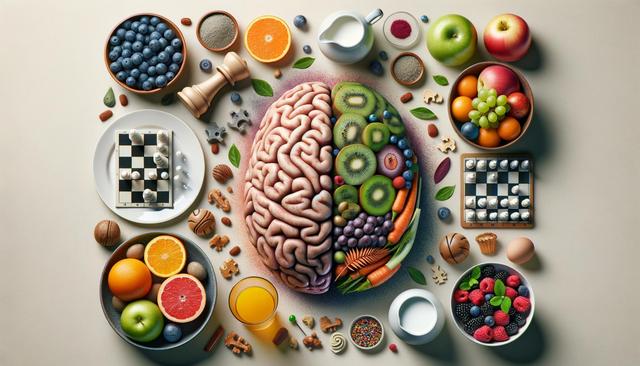Understanding the Labrador Retriever Breed
Labrador Retrievers are among the most popular dog breeds worldwide, and for good reason. Originating from Newfoundland, these dogs were initially bred to assist fishermen, retrieving fishing nets and escaping fish. Over time, their friendly demeanor and adaptability made them ideal family pets. Labrador Retriever puppies inherit these traits early on, displaying a gentle temperament and eagerness to bond with people. Their sturdy build, short coat, and expressive eyes make them not only adorable but also practical for various environments, whether urban or rural.
As a breed, Labradors are highly trainable and intelligent. This makes them suitable for various roles beyond companionship, such as therapy, search and rescue, and service work. Labrador Retriever puppies exhibit early signs of this trainability, responding well to basic commands and positive reinforcement. Their intelligence also requires mental stimulation, which is important to consider when planning their daily activities and training sessions.
Bringing a Labrador Puppy Home
Welcoming a Labrador Retriever puppy into your home is an exciting and rewarding experience. However, it also comes with responsibilities and preparation. Before bringing a puppy home, it’s important to ensure your environment is safe and suitable for a young, energetic dog. Puppies explore the world with their mouths and paws, which means they can easily get into trouble if their surroundings aren’t puppy-proofed.
Essential preparations include:
- Removing hazardous items and securing electrical cords
- Providing a comfortable sleeping area
- Stocking up on puppy supplies like bowls, food, toys, and grooming tools
- Scheduling a vet visit for initial health checks and vaccinations
Labrador Retriever puppies are social animals and thrive on interaction. Introducing them to various people, pets, and environments early on helps in developing a well-rounded adult dog. Creating positive experiences during this early stage will lead to a confident and friendly Labrador as they grow.
Training and Socialization
Training a Labrador Retriever puppy should start as early as possible. Their natural intelligence and desire to please make them quick learners, especially when positive reinforcement techniques are used. Basic training should focus on commands such as sit, stay, come, and leash walking. Consistency and patience are key to helping them understand expectations and build good habits.
In addition to basic obedience, socialization is crucial. Exposing your puppy to different sights, sounds, and experiences helps reduce anxiety and prevents behavioral issues later. Puppy training classes can be a great way to combine training with socialization, offering a controlled environment for your Labrador to learn and interact with others.
Training should also include crate training and housebreaking. Labradors respond well to routines, so establishing regular feeding and bathroom schedules helps them understand what’s expected. Crate training provides a safe space for your puppy and can be an effective tool for house training and managing their behavior when unsupervised.
Exercise Needs and Playtime
Labrador Retriever puppies are full of energy and require regular exercise to stay healthy and happy. While they are still growing, it’s important to provide age-appropriate activities that don’t strain their developing joints. Short walks, supervised playtime, and interactive toys are excellent ways to keep them engaged without overexerting them.
As they mature, Labradors enjoy more vigorous activities. They excel in games like fetch, swimming, and agility training. Providing a variety of physical and mental challenges helps prevent boredom, which can lead to destructive behavior. Integrating play into their daily routine supports their physical development and strengthens the bond between you and your puppy.
Some suitable toys and activities include:
- Soft chew toys for teething
- Puzzle feeders to stimulate their minds
- Rope toys for tug-of-war games
- Training games that reinforce learned commands
Regular exercise not only benefits your Labrador’s physical health but also plays a key role in maintaining a calm and balanced temperament.
Nutrition and Health Considerations
Proper nutrition is essential for the healthy development of Labrador Retriever puppies. A balanced diet supports their growth, immune system, and energy needs. It’s important to feed a high-quality puppy food formulated for large breeds, as this helps control growth rate and supports joint development. Overfeeding should be avoided, as Labradors have a tendency to gain weight easily.
Routine veterinary care is vital. Puppies should follow a vaccination schedule and receive regular check-ups to monitor their development. Parasite prevention, including flea, tick, and worm treatments, should also be part of your Labrador’s health plan. Discussing the right time for spaying or neutering with your veterinarian is another important aspect of long-term health care.
Grooming needs are relatively low-maintenance, thanks to their short, dense coats. However, regular brushing helps reduce shedding and keeps their coat in good condition. Labradors also enjoy water, so be prepared for the occasional muddy splash and bath time. Dental care, nail trimming, and ear cleaning should also be part of their grooming routine to ensure overall well-being.




Leave a Reply